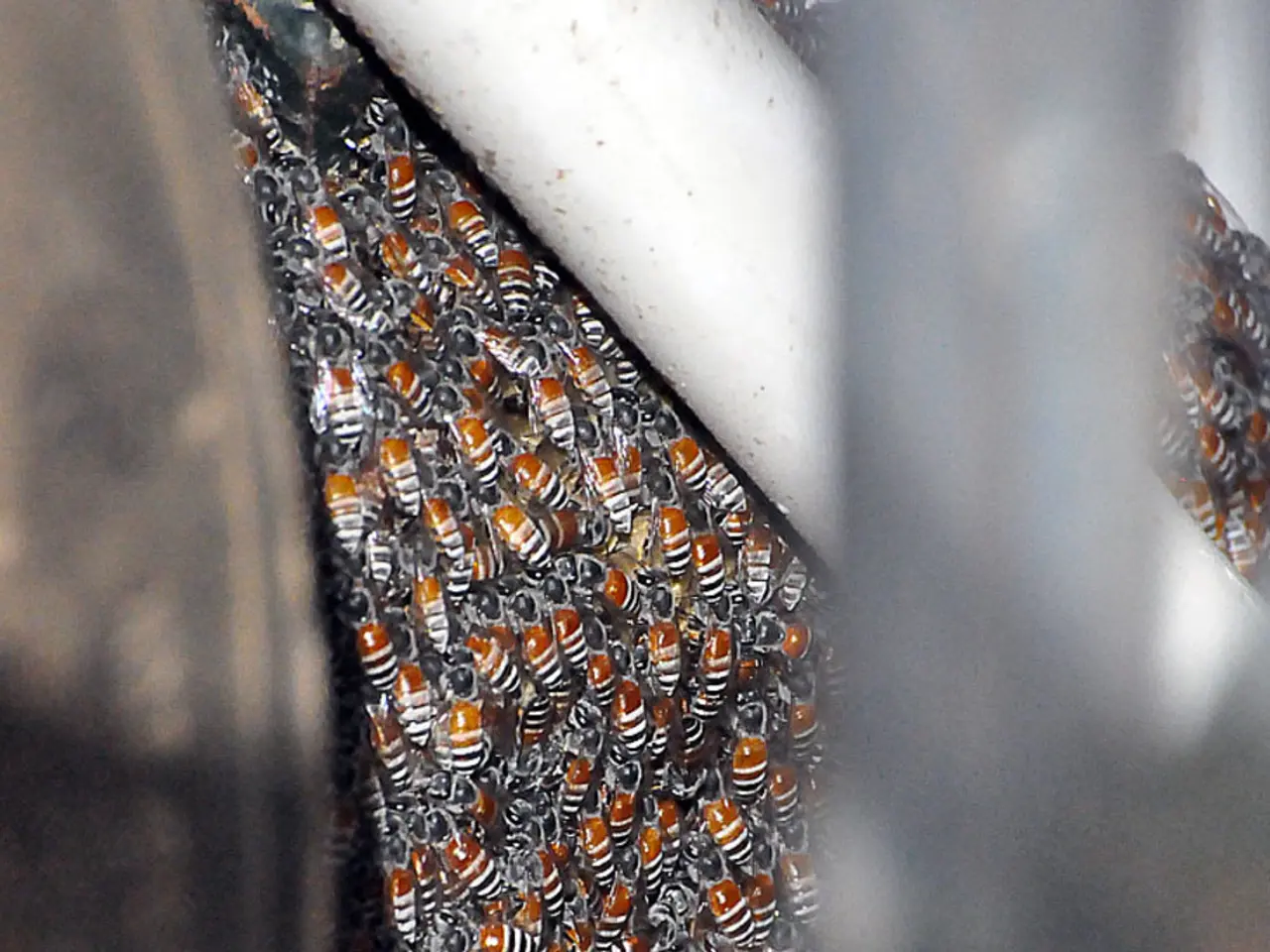Wasps persistently seek food sources, causing disturbance through their buzzing.
In the world of insects, wasps have earned a reputation that is often misunderstood. Contrary to popular belief, wasps are indeed beneficial insects for controlling pests and contributing to pollination, and they also exhibit learning behaviors.
Pest Control Role
Wasps are natural predators or parasitoids of a variety of insect pests, including caterpillars, aphids, weevils, and flies. Approximately 70% of wasp species are parasitoid wasps that lay eggs on or inside their prey, such as hidden caterpillars or larvae, which their offspring consume, effectively controlling pest populations [1][3]. Solitary hunting wasps specialize in hunting specific prey, like spider-hunting wasps that target spiders, paralyzing them and using them as food sources for their larvae, thus naturally limiting pest numbers [1].
Pollination Services
Beyond their pest control role, wasps also provide pollination services. Though less renowned than bees, they visit flowers, transferring pollen in the process [1][4]. This pollination service is crucial for the reproduction of many plant species.
Ecological Balance
Wasps are part of a balanced ecosystem. They serve as prey to birds, spiders, dragonflies, and other predators, which helps regulate their populations [2]. This delicate balance ensures that wasps do not become a threat to other species in the ecosystem.
Learning Behaviors
While specific details on complex learning are not given in the search results, parasitoid wasps show behaviors like antennae-tapping to locate hosts, indicating sensory learning and searching strategies [3]. Scientific studies have established that wasps can learn and remember flower colors, locations, and nest sites, demonstrating learning and cognitive abilities. For instance, researchers at the University of Michigan have observed this learning behavior in paper wasps [5].
Summing Up
In summary, wasps play a vital dual role as efficient natural pest controllers and pollinators. They exhibit behaviors consistent with learning to optimize foraging and reproduction. Their presence benefits gardens and agricultural ecosystems significantly [1][3][4].
Additional Information
- Wasps consume approximately 3,000 flies, moths, caterpillars, spiders, and other small animals per day.
- Paper wasps observe successful behavioral patterns from their peers for fighting strategies.
- Information on repelling wasps can be found, should the need arise.
[1] Wasps: Their Role in the Ecosystem. (2021). National Wildlife Federation. Retrieved from https://www.nwf.org/Educational-Resources/Wildlife-Guide/Invertebrates/Wasps/Wasps-Their-Role-in-the-Ecosystem
[2] Wasps: Facts, Habitats, and Importance. (2021). The Spruce. Retrieved from https://www.thespruce.com/wasps-facts-habitats-and-importance-3308335
[3] The Wasp's Nest: The Life and Times of a Parasitic Wasp. (2018). Oxford University Press.
[4] The Importance of Wasps in Pollination. (2021). BBC Earth. Retrieved from https://www.bbc.com/earth/article/p069n8d9
[5] Wasps' Nest Learning: How Social Insects Remember Each Other. (2017). University of Michigan. Retrieved from https://www.umich.edu/~newsoffice/stories/wasps-nest-learning.html
Enhancing Your Lifestyle and Gardening
Integrating wasps into your outdoor spaces can boost your landscaping and gardening efforts. Due to their predatory nature, they help control pests that may harm plants, contributing to a thriving home-and-garden environment.
Treat Yourself to Diverse Food-and-Drink Options
Wasps, in addition, indirectly support various food chains by reducing the population of harmful insects, allowing beneficial insects, plants, and even birds to flourish. This biodiversity can contribute to an abundance of food-and-drink options in your ecosystem.




